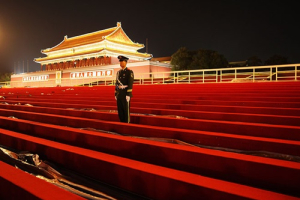A series of antitrust investigations by Chinese regulators are part of efforts to toughen enforcement of a 2008 anti-monopoly law and are not just directed at foreign firms, the official China Daily recently reported.
Some foreign executives in China have said recent high-profile probes into the milk powder and pharmaceutical sectors appeared to show foreign companies were being singled out, according to The New York Times.
Reuters reported last week that an official from the National Development and Reform Commission (NDRC) put pressure on some 30 foreign firms at a meeting in late July to confess to any antitrust violations and warned them against using external lawyers to fight accusations from regulators.
“There is no such thing as specially targeting foreign companies. Our investigations focus on monopolistic conduct, not the entities behind it,” the China Daily quoted an unidentified official from the NDRC as saying.
The NDRC, which regulates prices, was investigating other sectors but it was too early to release details because of the complexity of enforcing the anti-monopoly law, the official said, as reported in the South China Morning Post.
The China Daily also quoted Huang Yong, deputy head of the expert advisory group at the anti-monopoly committee under China’s cabinet as saying enforcement of the anti-monopoly law would become “the new normal.”
The NDRC has launched nearly 20 pricing-related probes into domestic and foreign firms in the last three years, according to official media reports and research published by law firms, according to the SCMP.
Earlier this month, the NDRC handed down record fines to six milk powder firms, including Mead Johnson Nutrition and Danone, for anti-competitive behavior. It is also investigating 60 foreign and local pharmaceutical companies over pricing and costs, as reported in the SCMP.
Getting an admission of guilt from companies makes it easier for the NDRC because lawyers who have dealt with it said its capacity for legal analysis was weak and that few within its antitrust bureau had a background in law, according to Reuters.
“They don't do analysis. They just do an interview and ask for an admission,” said one lawyer from a leading antitrust firm in China who also had direct knowledge of the July meeting.
While Chinese regulators have said little to explain the motivations behind the various pricing investigations, state media have accused the foreign media of exaggerating the issue.
In a commentary earlier this week, the official Xinhua news agency said such probes were routine in a market-oriented economy, Reuters reported.
“The battle is not targeted at foreign companies. It is aimed at creating a fairer, cleaner and better-regulated environment for economic competition,” the English language commentary said, according to Reuters. “Probing and punishing ill-behaved companies will increase the confidence of international firms in the Chinese market, not the other way round.”



















